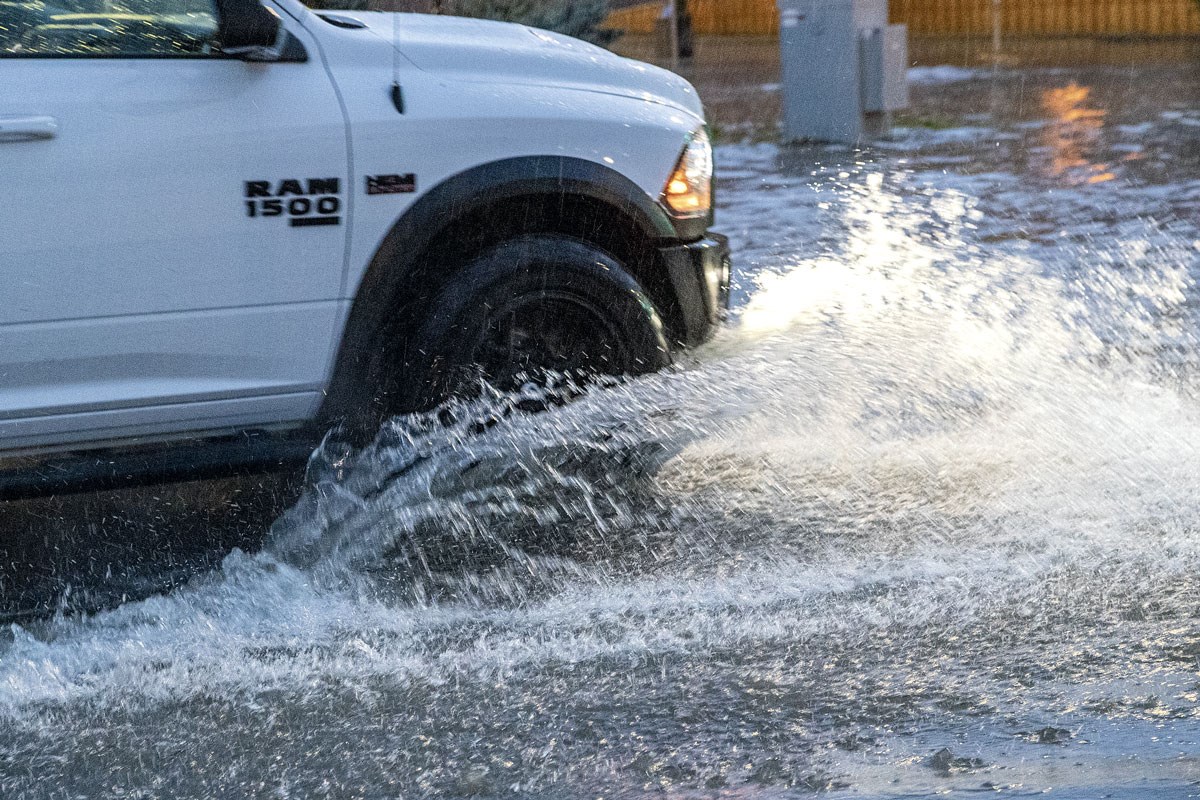Business
Prince George Council Weighs Stormwater Fee Option for Residents

The Prince George City Council is set to deliberate on the introduction of a stormwater utility fee, aiming to fund necessary infrastructure renewal rather than relying on general property taxes. This discussion will take place during the council meeting on October 6, 2024. If approved, homeowners could face an increase equivalent to a 2.25 percent tax hike when the program is anticipated to launch in 2027.
In September 2024, the council approved a motion directing staff to explore a stormwater utility fee based on the actual measurement of each property’s hard surface areas. The revenue generated would be allocated towards maintaining and upgrading stormwater infrastructure. A report from earlier in the year indicated that an average of $12 million annually is required over the next two decades to address the repairs and replacements needed for aging systems.
A survey presented four funding options for stormwater services as a utility. These included a fee integrated into property taxes based on assessed values, a tiered flat rate depending on property type, a fee determined by property zoning, and a calculation based on the hard surface area of properties. The last option garnered the most support from residents.
The upcoming meeting agenda includes a new report that details the fee structure options, developed with insights from the consulting firm AECOM Canada. Their findings revealed that the average hard surface area for residential properties is approximately 304 square metres, which will serve as the billing unit. According to the report, “All residential dwellings will be charged based on one billing unit,” with the rate set annually based on the approved funding levels.
For non-residential properties, billing units will be calculated based on their hard surface areas. For instance, a non-residential property with double the hard surface area of an average residential property would incur charges for two billing units.
The report noted that about 30 Canadian municipalities have already adopted utility fees to support stormwater services. Some of these municipalities have initiated credit programs to incentivize property owners to reduce runoff. Staff recommendations include offering up to a 50 percent credit for industrial, commercial, institutional, agricultural, and multi-family residential units that implement mitigation measures. A rebate program is also proposed for homeowners who install rain barrels, with a potential rebate of up to $150 for barrels of at least 132 litres, limited to 100 rebates each year.
Financial projections indicate the potential impact on residential properties if the fee program begins in 2027. For a home valued at the city’s representative assessed value of $467,684, the estimated stormwater utility fee would be $169.07. This reflects an increase of $65.92, equivalent to a tax increase of 2.25 percent. The fee structure is projected to generate approximately $9 million to cover stormwater expenses in 2027.
The staff report outlines five strategies for implementing the program. Should the council select one of the initial four options, administration anticipates presenting a bylaw to establish the Stormwater Infrastructure Fund Utility for council approval by the end of 2025.
-

 Education3 months ago
Education3 months agoBrandon University’s Failed $5 Million Project Sparks Oversight Review
-

 Science4 months ago
Science4 months agoMicrosoft Confirms U.S. Law Overrules Canadian Data Sovereignty
-

 Lifestyle3 months ago
Lifestyle3 months agoWinnipeg Celebrates Culinary Creativity During Le Burger Week 2025
-

 Health4 months ago
Health4 months agoMontreal’s Groupe Marcelle Leads Canadian Cosmetic Industry Growth
-

 Science4 months ago
Science4 months agoTech Innovator Amandipp Singh Transforms Hiring for Disabled
-

 Technology4 months ago
Technology4 months agoDragon Ball: Sparking! Zero Launching on Switch and Switch 2 This November
-

 Education4 months ago
Education4 months agoRed River College Launches New Programs to Address Industry Needs
-

 Technology4 months ago
Technology4 months agoGoogle Pixel 10 Pro Fold Specs Unveiled Ahead of Launch
-

 Business3 months ago
Business3 months agoRocket Lab Reports Strong Q2 2025 Revenue Growth and Future Plans
-

 Technology2 months ago
Technology2 months agoDiscord Faces Serious Security Breach Affecting Millions
-

 Education4 months ago
Education4 months agoAlberta Teachers’ Strike: Potential Impacts on Students and Families
-

 Education3 months ago
Education3 months agoNew SĆIȺNEW̱ SṮEȽIṮḴEȽ Elementary Opens in Langford for 2025/2026 Year
-

 Science4 months ago
Science4 months agoChina’s Wukong Spacesuit Sets New Standard for AI in Space
-

 Business4 months ago
Business4 months agoBNA Brewing to Open New Bowling Alley in Downtown Penticton
-

 Technology4 months ago
Technology4 months agoWorld of Warcraft Players Buzz Over 19-Quest Bee Challenge
-

 Business4 months ago
Business4 months agoNew Estimates Reveal ChatGPT-5 Energy Use Could Soar
-

 Business4 months ago
Business4 months agoDawson City Residents Rally Around Buy Canadian Movement
-

 Technology4 months ago
Technology4 months agoFuture Entertainment Launches DDoD with Gameplay Trailer Showcase
-

 Technology2 months ago
Technology2 months agoHuawei MatePad 12X Redefines Tablet Experience for Professionals
-

 Technology4 months ago
Technology4 months agoGlobal Launch of Ragnarok M: Classic Set for September 3, 2025
-

 Top Stories3 months ago
Top Stories3 months agoBlue Jays Shift José Berríos to Bullpen Ahead of Playoffs
-

 Technology4 months ago
Technology4 months agoInnovative 140W GaN Travel Adapter Combines Power and Convenience
-

 Science4 months ago
Science4 months agoXi Labs Innovates with New AI Operating System Set for 2025 Launch
-

 Technology4 months ago
Technology4 months agoNew IDR01 Smart Ring Offers Advanced Sports Tracking for $169










